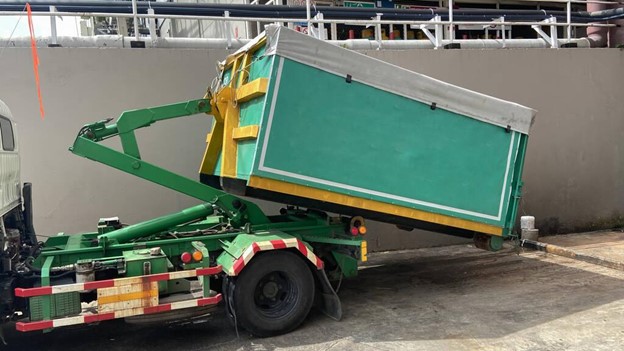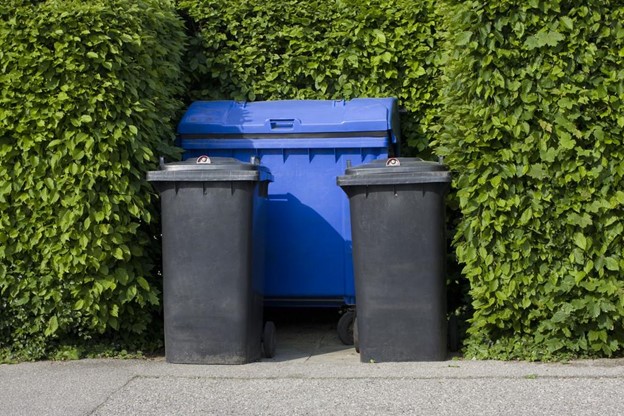Effective waste disposal services are crucial for maintaining a clean and healthy environment in Singapore. As the population and economy continue to grow, it becomes imperative to have efficient waste management systems in place to ensure the well-being and safety of the citizens. In this article, we will provide an overview of the various waste disposal services available in Singapore, highlighting their benefits, environmental impact, and regulations. We will also explore the role of the government in promoting effective waste disposal practices among businesses and individuals. Contact us today to learn more about our services!
Types of Waste Disposal Services in Singapore
Waste disposal services in Singapore encompass a wide range of solutions that contribute to keeping the city clean and safe. Singapore, being one of the most advanced cities globally, offers innovative waste disposal services. Let’s take a closer look at some of these services:
- Recycling Services: Recycling is a vital aspect of environmental conservation, and Singapore provides various recycling options for both residents and businesses. You can choose to drop off recyclables at designated centres or opt for convenient door-to-door collection by local authorities. Specialized companies also cater to specific recycling needs, such as e-waste, hazardous materials, and biomedical waste. These recycling programs reduce landfill waste and promote resource conservation.
- Hazardous Waste Disposal Services: Proper management of hazardous waste is critical to ensure the safety of the environment and public health. Singapore has specialized companies that offer collection and transport services for industrial, commercial, and domestic hazardous waste, including materials like asbestos, batteries, oil, and chemicals. These waste materials are safely recycled or disposed of at approved landfill sites or treatment facilities outside the city limits.
- Food Waste Disposal Services: Singapore’s large population results in significant food waste. To address this issue, waste disposal companies provide services to collect and process food waste. These services typically include the collection of food waste from commercial establishments and its transformation into useful byproducts such as compost or biogas through advanced waste treatment technologies. Such initiatives contribute to reducing waste and promoting a circular economy.
Challenges Faced by Waste Disposal Service Providers
Waste disposal service providers face multiple challenges as they strive to meet the increasing demand for efficient waste management. These challenges can be categorized into environmental, political/regulatory, and economic factors.
Environmental Challenges: Waste disposal companies bear the responsibility of ensuring the safe disposal of hazardous materials and preventing environmental contamination. Handling toxic chemicals, industrial by-products, and sewage sludge requires specialized expertise. Additionally, waste disposal companies face challenges related to non-biodegradable items, such as plastics, which pose difficulties for recycling or efficient breakdown.
Political/Regulatory Challenges: Waste disposal companies must comply with stringent regulations set by federal and state governments to ensure safe operations. Compliance becomes even more complex for companies operating across multiple regions or countries with varying rules. Policy changes can also impact waste management practices, necessitating frequent adjustments to operations and processes to maintain compliance.
Economic Challenges: Rising operational costs, such as fuel prices and labour expenses, pose economic challenges for waste disposal companies. Proper disposal of hazardous materials often requires specialized equipment, further increasing overhead costs. Moreover, acquiring licenses and permits for waste disposal services adds financial strain to these businesses.
Government Regulations on Waste Management in Singapore
Government regulations play a crucial role in ensuring sustainable waste management in Singapore. The government has implemented various policies to promote responsible waste disposal practices and reduce environmental impact. These regulations include:
- Mandatory Waste Sorting: Businesses are required to sort their waste into different categories to facilitate proper resource recovery and minimize pollution caused by mixed waste disposal. Businesses must separate recyclables from non-recyclables and dispose of them at designated sites or transfer them to licensed collectors. Unauthorized disposal into bodies of water or illegal dumping is strictly prohibited.
- Hazardous Material Storage and Transportation Regulations: Strict regulations govern the storage and transportation of hazardous materials. Businesses must store hazardous waste, such as asbestos, lead-based paint chips, and mercury lamps, in appropriate containers. Licensed collectors collect these materials for disposal at authorized sites. Transportation companies involved in handling hazardous materials must be appropriately registered with the National Environment Agency (NEA).
- Promotion of Reuse and Recycling: The government encourages greater reuse and recycling through initiatives such as the introduction of Extended Producer Responsibility (EPR) schemes. These schemes hold manufacturers responsible for the end-of-life management of their products, including take-back programs and recycling efforts.
Solutions to Enhance the Efficiency of Waste Disposal Services in Singapore
Efficient waste disposal is crucial for Singapore’s sustainable development. To improve the efficiency of waste disposal services, several solutions can be implemented:
- Public Education and Awareness: Enhancing public education and awareness about proper waste disposal methods can lead to better waste separation and conscious decision-making. Public campaigns should highlight the environmental and health risks associated with improper disposal, motivating individuals to make responsible choices. By educating the public, we can reduce overall waste management costs and promote sustainable practices.
- Technological Innovations: Embracing technological innovations, such as automated sorting systems, can streamline waste sorting processes, reduce manual labour costs, and enhance overall efficiency. Automated systems can categorize waste based on material type or size, increasing accuracy and productivity.

Conclusion
In conclusion, waste disposal services in Singapore play a crucial role in maintaining a clean and healthy environment in one of the world’s most densely populated cities. With a range of services, including recycling, hazardous waste disposal, and food waste management, waste disposal companies contribute to sustainability efforts. However, challenges related to environmental, political/regulatory, and economic factors persist. By complying with government regulations, promoting public education, and embracing technological advancements, waste disposal services can enhance efficiency and contribute to a cleaner and greener Singapore. Contact us today to learn more about our waste disposal services and join us in creating a sustainable future.





Be First to Comment